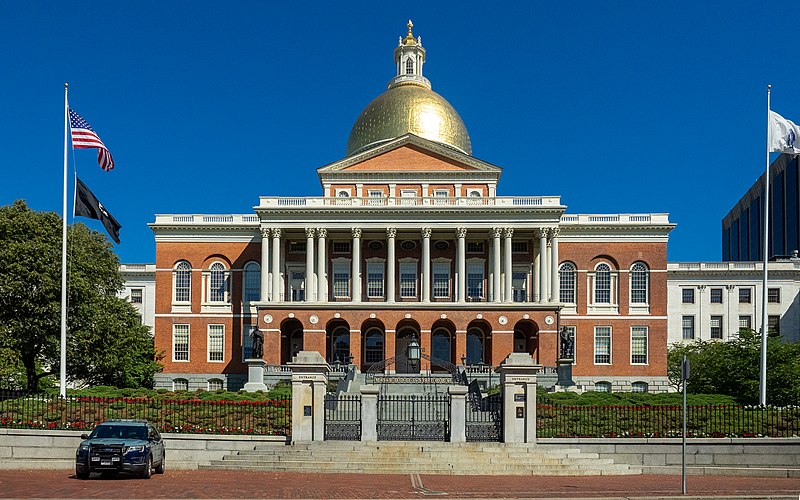Voters in Massachusetts will decide on a veto referendum to repeal House Bill 4855 (H. 4855), also known as Acts of 2024 Chapter 135, An Act Modernizing Firearm Laws. H. 4855 is an omnibus-style bill that made several changes to the state's firearm regulations. On Nov. 22, the veto referendum was certified for the general election ballot on Nov. 3, 2026.
The political action committee (PAC) leading the campaign behind the veto referendum is The Civil Rights Coalition, and Toby Leary, co-owner of Cape Gun Works, is the campaign's chairperson. The campaign filed 93,229 signatures, of which 78,707 were deemed valid. The campaign needed to collect 37,287 signatures for the referendum. An additional 12,429 signatures were needed to suspend the law until voters decided on the referendum in 2026.
H. 4855 was not suspended, however, because Gov. Maura Healey (D) issued an emergency preamble on Oct. 2, causing the bill to go into effect before signatures were verified. Gov. Healey said, "It is important that these measures go into effect without delay." Leary responded, "No doubt, under Article 48 [of the Massachusetts Constitution], there’s a provision there for a governor to sign an emergency preamble. However, the way in which it was done for purely political purposes to suppress a right, I believe the courts would look very disfavorably on."
The Civil Rights Coalition is campaigning for a "no" vote on the referendum, as a "no" vote would repeal H. 4855. A "yes" vote would uphold H. 4855. Leary said, "Gun rights are civil rights and it’s our belief that, just like other civil rights that have been hard fought in our country’s history, this is one worth fighting for. If you allow the right to keep and bear arms to be eroded, then every other civil right enumerated in our Bill of Rights could just as easily be taken away."
The Massachusetts Coalition to Prevent Gun Violence, which supports upholding H. 4855, issued a statement, which said, "Every resident of Massachusetts has the right to live free from the threat and trauma of gun violence. ... This comprehensive gun violence prevention law gives us more of these tools, and the Coalition is committed to protecting this lifesaving piece of legislation from repeal."
H. 4855 enacted multiple changes to firearm policies, including:
- requiring the Department of Criminal Justice Information Services (DCJIS) to develop and maintain a real-time electronic system for firearm registration, requiring all firearms to be registered with the registrant's personal and licensing information;
- changing the law from a ban on people possessing, selling, or otherwise transferring assault weapons to a ban on assault-style firearms, except those registered by August 1, 2024 (Note: The terms assault weapons and assault-style firearms are legal terms in Massachusetts with specific definitions.);
- requiring a person to receive a basic firearms safety certificate to apply for a Firearm Identification Card (FID) or License to Carry (LIC);
- mandating serial numbers for firearms, except antiques, and enacting penalties for possessing, creating, or transferring untraceable firearms;
- allowing school administrators and licensed healthcare providers to request that a court issue an Extreme Risk Protection Order, which requires individuals to surrender firearms, licenses, and permits; and
- permitting courts to order firearm surrender when issuing Harassment Prevention Orders, among other changes.
Voters in Massachusetts addressed a ballot measure related to firearms once before, in 1976, when voters rejected Question 5. The ballot initiative would have prohibited the possession, ownership, or sale of handguns (defined as weapons capable of discharging a shot or bullet with a barrel length under 16 inches), with exceptions.
The veto referendum on H. 4855 is the first of its type of ballot measure to address firearms in Massachusetts. While Question 5 of 1976 was proposed legislation, a veto referendum is against legislation that was signed into law; in other words, a veto referendum is about overturning a law rather than enacting a new one. In 1918, voters approved a constitutional amendment to establish the initiative and referendum process in Massachusetts. From 1919 to 2024, voters decided on 22 veto referendums. Voters upheld 12 bills (55%) and repealed 10 bills (45%). The most recent veto referendum was on the ballot in 2022, when voters approved Question 4, upholding House Bill 4805 (H. 4805). The legislation allowed persons without verified citizenship or immigration status to obtain a driver’s license or motor vehicle registration with other forms of identification.
Across the 23 states that provide for a veto referendum process, one referendum addressed firearms: Maryland Question 3 of 1988. Voters approved Question 3, upholding legislation prohibiting the manufacture or sale of handguns not included on the state's roster of permitted handguns.
Additional:



